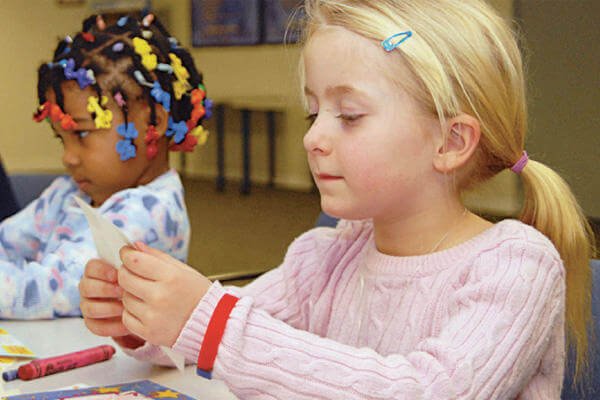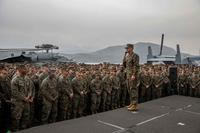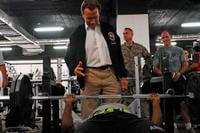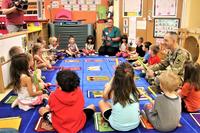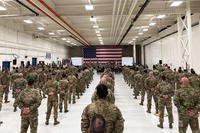"The parent at home should never discourage a child from feeling hurt or resentful; don't make them feel bad for having bad feelings. Let them know it is normal and OK to be mad or sad, but then explain how important Dad's job is and why he is doing what he is and that he still loves you very much. Dad would not be who he is if he were not a soldier—it is what makes him special."
—Army spouse
It's important to honor your child's special relationship with the service member parent. Here are some activities thatcan help:
Participate in the Preparation of Care Packages
Encourage your child to take a big part in assembling care packages, selecting special items to send or, better yet, handmaking items to include.
"The kids always help with the care packages. We also do a lot of military, family-related events on base to be with other families who are with us on the deployment. This time, I signed my son up for a group at school that is comprised of kids whose parents are deployed."
—Marine spouse
Maintain a Routine
When a service member parent is deployed, it can cause a great deal of stress and anxiety for children as well as adults. It's easy for this anxiety to interfere with the day-to-day routines that provide children with much-needed comfort and stability. When routines are disrupted, a child's overall quality of life is diminished. Maintaining your pre-deployment routine provides children with a sense of normalcy at a very vulnerable time in their lives.
Plan Deployment Activities
Having special milestones to look forward to and activities to stay busy with can help children get through deployment. It keeps them in a routine, helps with self-esteem, and can even encourage friendships with other children in their situation. Activities may include sports, a camp, or even a family road trip to see cousins or friends. It's never too late to start something new.
"When he first leaves, we go and do something fun right away."
—Coast Guard spouse
Encourage Age-Appropriate Skill Development
Involve your child in skill-building activities such as home chores, sports, dance, arts and crafts, music lessons, and Girl Scouts or Boy Scouts.
"I put my kids in after-school activities to make sure that they were busy."
—Army spouse
Engage Support from Your Child's School or Community Groups
Research shows that children are more resilient and acclimate to deployments better when they sense their communities and those close to them support their service member and believe in the importance of their deployment. Involve your child's school classroom, if possible, by asking her teacher to acknowledge her service member's deployment through writing letters, creating class care packages, or other educational activities. You can encourage the same for community, religious, or sports groups that your child participates in, allowing your friends, neighbors, and other education and civic connections to support and celebrate your military child's experiences.
One great example of a way to highlight your child's service member when he is deployed is to encourage your school to participate in HISTORY's "Take A Veteran To School" program (www.history.com). Schools have Skyped (www.skype.com) with or viewed pre-recorded messages from deployed service members during events surrounding Take A Veteran To School, and HISTORY has created curriculum guides for grades K-12 to help connect this program to academic curriculum.
This excerpt is provided courtesy of the acclaimed free digital resource "Everyone Serves." Download your free copy with additional media content today at everyoneservesbook.com.
